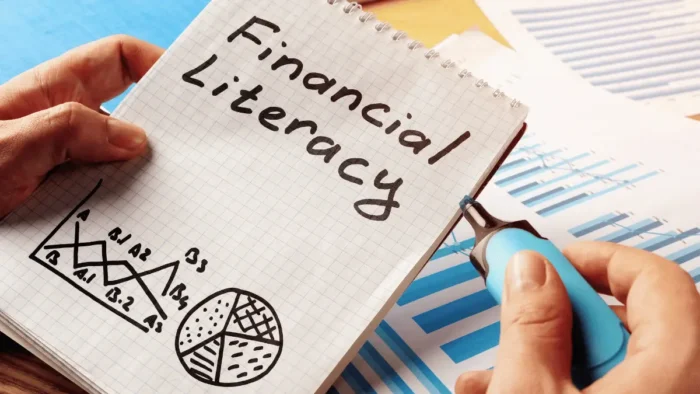Saving, budgeting, and financial responsibility are three new friends all college students meet when they start living on their own. Of course, this is something new for every learner. But how come some students deal better than others?
The answer is their financial literacy skills. We are here to explain why one student always remains poor no matter how hard they work, and another one succeeds in becoming rich. You have probably recognized the analogy with the famous book “Rich Dad Poor Dad”.
In his book, Robert Kiyosaki compares the financial education and mindset of two fathers: poor dad (the author’s biological father) and rich dad (his mate’s father). The first one was a highly educated government employee who believed in working hard, saving money, and getting a good job with benefits. The second one was an entrepreneur with no formal education but with a wealth mindset.
If you are familiar with this book, it will be easier for you to understand the basics as a student. If you keep asking yourself: who can write me an essay?, it is time for your first investment. If you choose experienced authors, there are no risks. But the rewards are high: excellent grades and more free time. As you see, financial literacy is not only about stocks and shares.
The book contrasts the financial education and beliefs of the two fathers and the lessons the author learned from them. The title reflects the fact that the author had two fathers with vastly different attitudes towards money and wealth creation, and how those differences shaped his own commercial beliefs and mindset.
What other valuable lessons can college students learn from Kiosaki’s book? We have gathered the main ideas that will help you to live a rich student life.
1. Be Responsible for Your Financial Education
Traditional education does not focus on teaching about money, and that’s why many people struggle with their finances. Luckily, we have access to so many books and podcasts these days that we can only blame ourselves if we stay financially illiterate.
Besides, you can download useful apps that will help you out as a student. You can check these out and search for more:
- Monefy (plans your expenses according to a given budget, not all the income)
- Money Lover (sorts your funds into different wallets and monitors their status)
- Fin (allows you to save money and achieve your commercial goals by adding and analyzing your own transactions)
2. Differentiate between Assets and Liabilities
According to Kiyosaki, you should distinguish between something that puts money in your pocket and something that takes money out of it. To become financially independent, one must focus on acquiring assets, not liabilities that drain their resources. In other words, do not live below your means. Learn to control your expenses.
3. Seek Mentors
College years are just right for meeting people who provide guidance and support on the path to financial independence. It can be anyone: from an author of the best paper writing services to an experienced college professor. You never know where you will read or hear valuable insight, so always stay tuned up not to miss it.

4. Generate Cash Flow
Board game developers seem to realize how important it is to teach students financial literacy. Therefore, Cashflow appeared on the market. Here you can run virtual companies and practice your skills in accounting, investments, and budgeting.
“Rich Dad Poor Dad” teaches that cash flow is the most important thing when it comes to financial independence. The author suggests that one should focus on creating passive income streams to achieve financial freedom.
5. Start a Business
The rich dad believed in taking risks, starting a business, and creating passive income streams. He taught the author about the importance of financial education, investing, and building assets that generate cash flow.
When do you dare to launch a startup if not in college? This environment is just right if you want to test or improve your product. Besides, you can inspire your college mates with the desire to see the ocean, and you will build your business ship together.
Do not forget: if you start your business on your own, without college benefits, you would have to pay for everything, from consulting to Wi-Fi. So enjoy the resources that your university offers and be grateful for them.
Owning a business is one of the best ways to create wealth and achieve financial independence. Practice your leadership skills as a student to become an inspiring boss for your employees in the future. If you manage this when you are young, you are doomed to succeed when you become mature.
6. Take Calculated Risks
No matter how much we all want to succeed, we cannot always be the winners. Give yourself a chance to screw up. If you overcome this stage, you will understand what went wrong. This valuable experience will help you with building wealth in the future.
7. Create Passive Income
Let us be realistic: as a student living in a dorm room, you are unlikely to have a property to rent. But do not forget we live in the 21st century! You can create an online business, such as:
- a blog
- a YouTube channel
- an e-commerce store.
Such businesses generate passive income through advertising or affiliate marketing. If the words affiliate marketing give you goosebumps, it looks like we have just discovered another gap in your commercial knowledge that you need to cover.
Bottom Line
Financial literacy is a critical life skill that every student should learn. It involves understanding how to:
- manage money
- invest wisely
- create wealth.
It empowers learners to make informed decisions and set themselves up for a successful future.
If students are equipped with financial literacy skills, they:
- make smart commercial decisions
- avoid pitfalls
- achieve long-term stability and success.
Moreover, financial literacy education is essential for building a secure society. If our educational systems do not prioritize it, we should take this responsibility ourselves.





